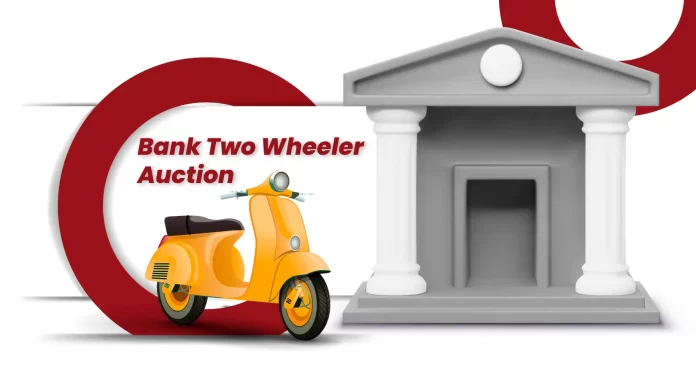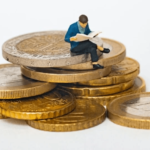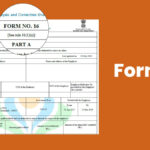Customers have realised that participating in a bank auction is an excellent way to purchase a used bike at a greatly reduced cost. There are numerous advantages, including the ability to purchase a previously owned bike in outstanding condition. However, to proceed, you must first understand the appropriate method.
We’ve covered all you need to know about buying confiscated bikes from banks in this article. So, if you’re looking for a bank-seized two-wheeler auction in India, this is the place to go.
How Do I Purchase Bank-Owned Bikes?
Are you looking for a reasonably priced used bike? Consider looking for a bank-seized bike. These bikes are frequently priced much below market value and are in excellent condition. However, understanding the process of How to Buy a Used Bike from a Bank Auction in India is critical to ensuring a successful transaction.
To buy confiscated bikes from Indian banks, first look for future auctions, which are frequently announced in bank notifications, newspapers, or online listings. Investigate all aspects of the bike, including the manufacturer, model, year, and condition. Register with the auction house. Inspect the bikes in person before the auction to determine their condition.
In this article, we’ll walk you through the processes required for a successful bank-seized two-wheeler auction in India transaction.
1. The Auction Procedure
Let’s begin by going over the steps for purchasing seized bikes from banks:
a. Locating Auctions: The first step is to determine when and where bank auctions are taking place. You can look for postings by contacting local banks, scanning local newspapers, or visiting online auction platforms.
b. Bikes investigate: Once you’ve identified an auction, it’s critical to investigate the bikes up for sale. Examine the make, model, year of manufacture, and condition of the bike. Knowing the market value will assist you in determining a reasonable bid price.
c. Auction Registration: Before you can participate in the auction, you must first register with the bank. This includes supplying personal information such your name, address, and contact information.
d. Inspecting the Bikes: You will have the opportunity to inspect the bikes before the auction begins. Examine them thoroughly, noting any damage or flaws. This inspection will assist you in determining a reasonable bid cost.
e. Bidding on Bikes: As the auction begins, you can begin making bids on the bikes of interest. It is critical to set a maximum bid and not exceed it. Remember that there may be other bidders, therefore strategic bidding is essential.
f. Auction Price Payment: If you are the highest bidder on a bike, you must pay the auction price. This payment is typically made via demand draft or internet transfer.
g. Obtaining Necessary documentation: After winning the auction and making payment, go to the bank and obtain the necessary documentation. The auction invoice, delivery challan, and Forms 32 and 35 are common examples.
g. Ownership Transfer: With the relevant documentation in hand, transfer ownership of the bike into your name. The bike must be registered with the Regional Transport Office (RTO).
How to Conduct Thorough Research Before Purchasing a Seized Bike
Before you participate in a bank auction, you should do your homework:
a. Locate Banks That Hold Auctions: Begin by locating the banks that hold auctions in your city or state.
b. Research the motorcycles: Once you’ve found an auction, look into the motorcycles for sale. Determine the make, model, year of manufacture, and condition of the vehicle. This information is available through the auction notice or by calling the bank.
c. Auction Date and Location: Make sure you are informed of the auction date and location well in advance. This gives you enough time to plan and make the required arrangements.
f. Check Bike History: Before bidding, check the bike’s history. Checking the registration certificate, insurance documentation, and service history is part of this process. This step assists you in avoiding motorcycles with possible problems or high repair expenses.
d. Bring a Mechanic: If at all feasible, bring a mechanic to the auction. Mechanics may perform a complete check and identify potential issues, allowing you to make an educated selection.
Following these procedures will allow you to undertake proper research while purchasing a bike at a bank auction in India.
Registration –
Following the selection of an auction, the following step is registration. To register, you must supply the bank with your personal information and identity documents. Make sure your identity documents are up to date in order to speed up the registration procedure and allow you to participate in the auction.
Check Your Eligibility: Make sure you meet the auction’s eligibility requirements, which may include age limitations or a deposit.
Visit the following website: Navigate to the auction’s host bank’s or financial institution’s website.
Find Auction Details: Look for information on upcoming auctions, such as dates, times, and venues.
Complete the Auction Registration Form: Download and fill out the auction registration form, which is normally available on the internet.
Submit Required Documents: Gather all required documents, such as proof of identification, residence, and any required deposits. Please include these documents with your registration form.
Pay the Registration charge: Some auctions may need you to pay a registration charge. Make sure you pay this fee according to the instructions.
Send Your Application Here: Submit your completed registration form and papers in accordance with the bank’s requirements.
After verifying your application, the bank will send you confirmation of your registration as well as information on the auction.
Bidding Strategies
Here are some helpful pointers to remember when bidding on a bike at a bank auction:
a. Create a Budget: Prior to the auction, create a budget for the bike you want to bid on. This keeps you from overbidding and keeps you within your budget.
b. Research the Bike: Do extensive research on the bike of interest. Understand its market value and condition to make more informed bidding judgements.
c. Attend pre-auction inspections to check the bike’s condition and identify any faults or problems. This will keep you from bidding on a bike that needs expensive repairs.
d. Begin with a Low Bid: Begin bidding with a low sum and gradually increase it dependent on competition. Avoid going overboard.
e. Be Patient: Avoid making rash bids. Wait for the right opportunity to put your bid; occasionally waiting until the end of the auction will benefit you.
f. Avoid Emotional Bidding: During bidding, remain calm and reasonable. Overspending might result from emotional bidding. Make decisions based on research and inspection.
g. Maintain Focus: Maintain your focus on the auction and prevent distractions. Prepare to act quickly when bidding begins and stay focused on the bike you want.
Benefits of Buying at a Bank Auction
- Buying a bike at an Indian bank auction has various advantages:
- Bikes that have been well-maintained are frequently offered at bank auctions for less than market value.
- Transparent Process: Bank auctions follow a transparent and fair process, giving all bidders equal opportunities.
- Regulated Transactions: Banks are regulated entities, which ensure that rigorous criteria are followed during auctions.
FAQs-
Q1. Can Anyone Attend a Bank Auction to Purchase a Bike?
Ans: Anyone who meets the auction qualifications is eligible to participate in a bank auction to purchase a bike. This usually entails providing required documentation and paying a registration cost.
Q2. What Documents Do I Need to Register?
Ans: Documentation requirements differ based on the bank and the auction. In general, you’ll need to provide proof of identity, address, and income, as well as a copy of your PAN card and a passport-sized photograph.
Q3. Can I inspect the motorcycle before the auction?
Ans: Most banks perform pre-auction inspections, which allow you to examine the condition of the bike and highlight any faults. You can also hire a mechanic or professional to inspect the bike on your behalf.
Q4. How Much Should I Bid at an Auction for a Bike?
Ans: Before bidding, it is critical to undertake extensive research on the bike’s market value and condition. Set a budget, start with a low bid, and don’t go over your budget.
Q5. Can I get a bank loan to pay for my bike?
Ans: Some banks may provide financing for bike purchases made at auctions.











